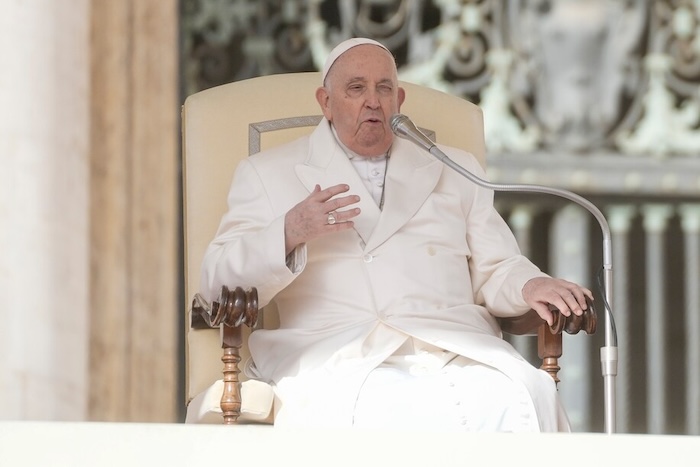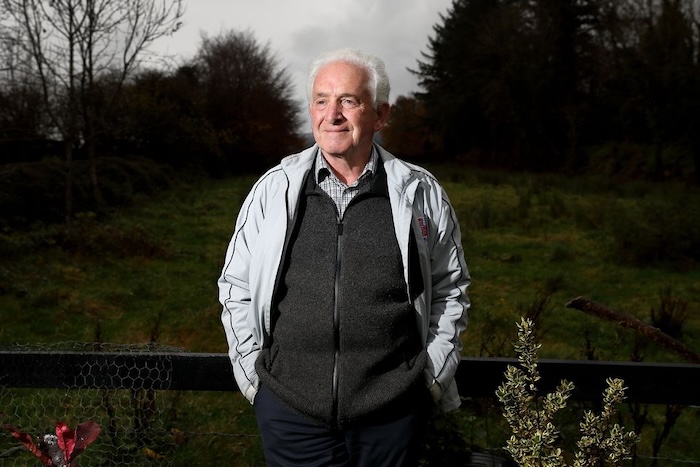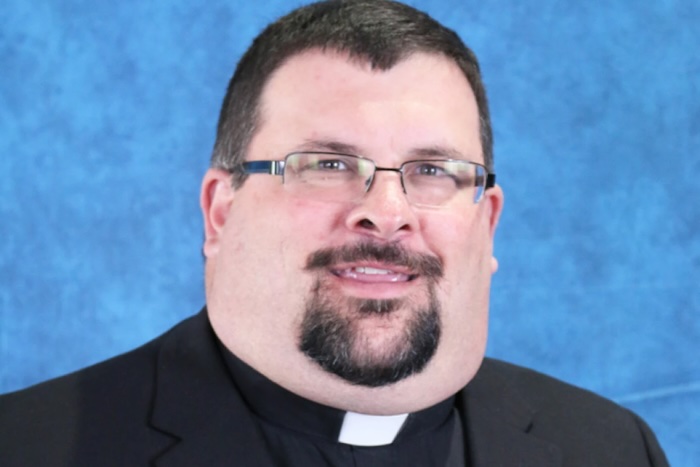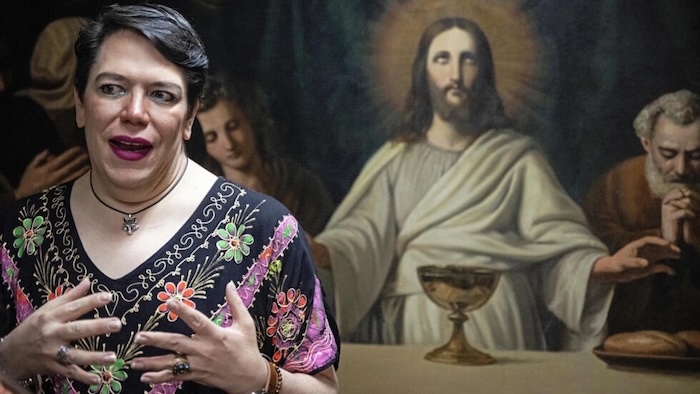— Canadian Oblates commissioned Andre Denis to investigate handling of allegations against Johannes Rivoire
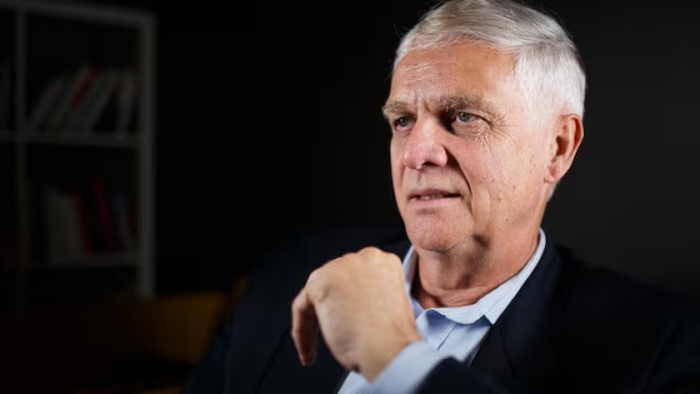
By Emma Tranter, Tessa Vikander
A retired Quebec Superior Court judge, in a report commissioned by the Canadian Oblates, says he believes allegations made against former Nunavut priest Johannes Rivoire of sexually abusing children in the territory are true.
The report, written by Andre Denis, also suggests the Catholic church was not aware of the allegations made against Rivoire at the time because the RCMP didn’t notify them.
“Rivoire did not tell the whole truth to his superiors, to his confrères, to the Inuit for whom he had pastoral responsibility, and he himself denies a reality that has nevertheless been demonstrated,” Denis wrote in a 57-page report released Tuesday.
Denis’s report is not a legal finding of guilt. His investigation makes conclusions based on a “preponderance of evidence,” and not “proof beyond a reasonable doubt.”
Rivoire, an Oblate priest from France, has long faced allegations he sexually abused children in Nunavut in the 1960s and 1970s. He spent more than 30 years working as a priest in the territory, mostly in Arviat and Naujaat.
Rivoire, who is 92 and lives in Lyon, France, and his lawyer have denied all of the allegations against him. CBC has reached out to Rivoire’s lawyer about the report, but has not received a response.
The Oblates of Mary Immaculate, OMI Lacombe Canada and the Oblates of the Province of France hired Denis to investigate how past allegations against Rivoire were addressed within the congregation.
“The scandal for the plaintiffs is that Joannès Rivoire remains a religious despite all he has done. This is a reality the victims do not accept,” Denis wrote.

6 years before charges were laid
Denis travelled to France, Italy and Canada, including Nunavut, where he interviewed some of Rivoire’s alleged victims.
He also met at length with Rivoire, who denied the allegations but claimed he had a consenting sexual relationship with a woman in the territory.
Denis also concluded the Catholic church didn’t try to help him escape the Canadian justice system.
Three charges of sexual abuse were laid against Rivoire in 1998. They were stayed in 2017 after the Crown decided there was no reasonable prospect of conviction.
A new charge was brought forward in 2022 and an arrest warrant was issued for Rivoire.
Days before the first complaint was filed with the RCMP in 1993, Rivoire fled Canada for France.
Denis says Rivoire told the church he needed to return home to take care of his elderly parents.
The RCMP finally charged Rivoire in 1998.
“The RCMP had no communication with the Oblates, nor did they notify them of anything throughout the legal process,” Denis wrote.
“Had these complaints been brought before the court in 1993, it is possible to believe that Joannès Rivoire would have returned to Nunavut to face Canadian justice. He probably could have been persuaded to do so.”
Denis says the Oblates were not informed of Rivoire’s charges until more than a decade later.

Inuit survivors began speaking publicly about what they went through. A delegation also travelled to France in 2022, and asked that Rivoire return to Canada and face trial, and advocates for survivors of child sexual abuse in France also campaigned on the issue. The Oblates in both countries supported the request.
Although the priest has faced several criminal charges from the Canadian courts, France does not typically extradite people, and in October 2022, the country denied the latest request for Rivoire’s extradition.
Last month, leadership in Rome ruled against Rivoire’s dismissal from the Oblates.
‘I was angry’
Tanya Tungilik, whose late father Marius Tungilik had accused Rivoire of sexual abuse, said she had mixed feelings after reading the report.
“I was angry at a lot of parts but glad that [Denis] said that Rivoire was guilty of the crimes … that he believed us,” she said on Tuesday.
Tungilik said she was troubled by how long it took for the RCMP to investigate the allegations brought against Rivoire.
“Why did it take so long?” she said. “They need to be held accountable, too.”
She also said she doesn’t believe Denis’s claim that the Oblates didn’t know about the allegations made against Rivoire.
“I’m glad that it’s out there,” Tungilik said. “But I’m disappointed and angry that he says that the Oblates didn’t know at all.”
Facts hidden
Denis met with Rivoire in Lyon, France, in the spring of 2023, but explains in the report that he doesn’t believe “the version of events” that Rivoire told him.
Instead, Rivoire left Canada “hiding this terrible reality” from church authorities. He told a “true but incomplete story” that he was only returning to France to care for his sick parents.
Reflecting on meeting the Inuit delegates in 2022, Denis said Rivoire told him he thought those who were accusing him “may be trying to get money out of the Oblates.”
Denis’ research of historical documents found Rivoire “did not tell the whole truth to his superiors.”
His report quotes a 2013 conversation between Rivoire and Father Yves Chalvet de Récy, when Chalvet had just learned of the arrest warrant for Rivoire.
At that point, Rivoire is said to have told Chalvet the children he was accused of abusing “were looking for tenderness that they didn’t have in their families.”
“If I’m not innocent, the children aren’t either,” Rivoire told Chalvet.
“It’s true that I’m not innocent, but allegations of sexual assaults on minors are a fabrication. That’s why I came back to France in the first place.”

Rev. Ken Thorson, with the Oblates of Mary Immaculate Lacombe Canada, said they accept the report’s findings “with a heavy heart.”
“We wish to apologize unequivocally to anyone who was harmed by an Oblate priest and to continue taking concrete steps towards transparency and transformation, informed by guidance from victims, survivors and Inuit representatives.”
Complete Article ↪HERE↩!

